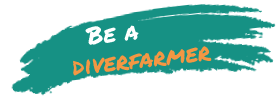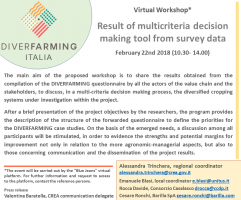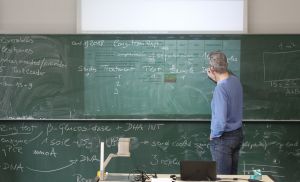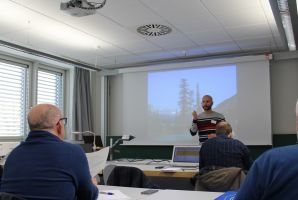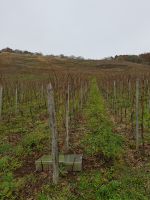- Details
With the aim of sharing the result of the survey carried out among the actors and stakeholders of Diverfaming, the project will organize some workshops. This survey seeks to obtain the necessary data to create a tool that helps farmers in the decision making process in order to choose the best diversified cropping system for their land. This task lays the foundations for choosing the best crop associations and the easiest way to do it.
- Details
The work days at the University of Trier have served to determine which analysis techniques the team will use
One of the main particularities of a project integrated by 25 actors, from eight different countries and from multiple disciplines is that of reaching common conclusions and establishing working methods through dialogue and debate. Diverfarming, in its task of drawing a new map for European agriculture based on crop diversification and sustainability, has managed to establish a common strategy.
- Details
The German university holds work days to analyse the different techniques used in the study of soils and plants
The University of Trier has today seen the inauguration of the work days on soil and plant sampling protocols, organised by the Diverfarming European project, with the participation of professors Beatriz Lozano and Luis Parras from the Departamento de Química Agrícola y Edafología of the Universidad de Córdobaand whose communication plan coordinates the Unidad de Cultura Científica y de la Innovación at the UCO.
- Details
The project, within the framework of the Horizon H2020 of the European Commission, has carried out a bibliographical search on the state of crop diversification in Europe.
Intercalating crops and reducing or eliminating tilling practices. That is the basis of the diversification of perennial and woody crops that predominates in Europe.
These farming practices become the backbone that unites latitudes through olive, almond and citrus trees in Spain; vineyards in Germany and fruit trees in Hungary. Crop irrigation depends, basically, on the precipitations falling on the land, whilst the common practice regarding fertilisation is the use of compost or manure, with special mention to ground olives in Spain and the biochar in vineyards in Germany.
- Details
A Workshop on sampling and sample procedures and protocols for WP3, 4 and 5 will be organized in Trier, Germany, on 18-20 January 2018. Diverfarming partners attending the Workshop will agree about soil/plant sampling processing, storage and analyses for a common approach in each case study. The selected procedures/protocols will be gathered in a Handbook.
To attend this Workshop you need to register on this form. This form includes the Workshop Agenda, so that you can select the special meeting you are attending: WP3, WP4 or WP5. There are other optional events such as dinner and excursion that you can select if you mean to participate.






